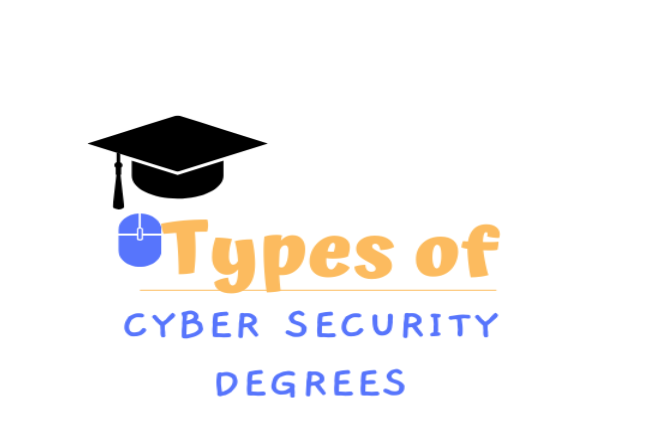Earning a successful online cybersecurity degree in 2025 is not just about acquiring knowledge but mastering the art of online safety in the long run. The year promises a landscape where cyber threats will continue to morph and adapt, requiring a new breed of cybersecurity professionals. These professionals must possess cutting-edge skills and a profound understanding of the strategies employed by both black-hat hackers and state-sponsored actors.
This complete guide will navigate aspiring cyber guardians through the complicated maze of online cybersecurity education in 2025. From choosing the right degree program to delving into ethical hacking, digital forensics, and beyond, we’ll unravel the secrets to a successful online cybersecurity degree in 2025.
Why a Career in Cybersecurity?
As a science and math enthusiast, you’re probably wondering what to do with your genius self to enjoy the most of your passion in these two subjects. A career in cybersecurity can come in handy, especially if you’re also creative, besides loving science and math.
Cybersecurity is one of the most lucrative career paths to follow today, as evidenced by the impressive number of job offers available. For instance, there were more than 750,000 cybersecurity jobs on offer in February 2023 in the U.S. alone.
Additionally, the U.S. Bureau of Labor Statistics projects a whopping 32% growth rate between 2022 and 2032, a much faster growth rate than average.
If you more often like thinking outside the box and building unique solutions from scratch, then you’ll easily excel in a career in cybersecurity.
Skills for a Successful Cybersecurity Career
So, you want to get started in cybersecurity? Here are some of the top skills you’ll need to succeed:
Soft Skills
- Ability to quickly adapt to new skills
- Attention to detail
- A team player
- Excellent communication
- Quick learning and improving traits
- Leadership and networking
Technical Skills
- Understanding of security audits
- Proficiency in programming languages like C++, Java, and Python
- In-depth understanding of the fundamentals of Computer networking and cloud computing
- Knowledge in building and evaluating network architecture
- Experience in working with MySQL database platforms
- Understanding of how operating systems are built and managed
- Deep grasp of basic antivirus systems, firewalls, and VPNs
Based on your skills and desires, you can specialize and build a successful career in cybersecurity.
Cybersecurity Degree Requirements in 2024: What You Should Have

If you’re planning to get admission to a cybersecurity course in 2025, there are some basic requirements you must fulfill.
While each degree program and school has its varying admission requirements, the following are the standard ones that cut across:
- A minimum GPA of 3.0
- A letter of intent or an admissions essay
- High school grades or transcripts
- Letter of recommendation
- Minimum ACT or SAT scores for your specific program
- High school diploma or a global equivalent
Some schools may ask for lower requirements, like a GPA of 2.0 for your high school diploma. But with such a lower requirement, you’d be required to have at least completed the following units in high school:
- Three math units
- Four English units
- Two social sciences units
- Two science units
If you’re going for a master’s degree, the main requirement is a bachelor’s degree from a regionally accredited university backed by official transcripts.
As an international master’s degree student, you’ll need a TOEFL score meeting a set minimum threshold before you are cleared for your program.
Factors to Consider When Choosing an Online Cybersecurity Degree Program

Settling for the right cybersecurity degree program depends on several factors, such as your general availability and the skills you want to explore.
Here are some of the key factors to help shape your decision when choosing an online cybersecurity degree.
Program Qualifications
Different online cybersecurity programs can have different qualification requirements, especially because they’re offered in different geographical locations.
It’s prudent to check what is required of you before you get going to avoid last-minute disappointments.
Also, if you fail to meet a few requirements, you can always reach out to the school to see if there are options around such cases. You might be asked to do some tests or sign up a few months earlier than normal so you can meet the minimum threshold for the course.
Availability
It’s possible that if you’re thinking of taking an online cybersecurity degree program, you have limited availability.
Online studies allow for flexible classes and an unlimited list of schools around the globe to choose from. This means that even with limited time, you can easily follow through with your classes and graduate on time.
Salaries and Remuneration
Even if you have reservations about high school fees and the amount of time it takes to graduate, the expected salaries for cybersecurity roles are always high. You can expect a salary range of up to $500,000 per year for top positions and around $100,000 for maiden roles.
Good pay should be a positive motivation to keep pursuing your degree even when the odds stand against you at the beginning.
The School’s Reputation
Whether you’re taking an undergraduate or master’s degree in cybersecurity, the school you choose matters a lot. A school with a strong reputation in cybersecurity is a better investment than signing up for just any school that offers cybersecurity as a subsidiary course.
Most employers will check the strength of your certificate based on the school you acquired it. This is because schools with a deeper root in cybersecurity invest in their students, giving them the best training for the market.
You can choose the best school by:
- Seeking recommendations from peers, managers, or co-workers if you’re already working
- Researching for online listings from reputable sites like the U.S. News and World Report
- Researching top cybersecurity companies and checking where their top talents schooled
- Reaching to former students of relevant programs via LinkedIn and asking what their experience was
Once you settle on a few options to choose from, you can check the specific cybersecurity department to see how good a reputation the department has. Remember, a good overall school reputation is great, but the department’s repute equally matters!
Study Duration and Start Dates
While a typical cybersecurity bachelor’s degree takes four years to complete after doing about 120 – 125 credits (units), the time can vary based on personal preferences.
If you need your bachelor’s degree faster, you can go for compressed programs that take a shorter time of about three years to complete.
However, if you’re unsure, you can dedicate three continuous years to uninterrupted studies, and then you can ask for more time based on your availability.
Degree programs that start immediately after you apply will mean you set your finances ready and dedicate your time to the program. Always check these details in advance so you don’t pay for a program whose structures and timelines you can’t meet.
Types of Cybersecurity Degrees Available in 2025

As with any other course, a bachelor’s degree in cybersecurity has metamorphosed over the years, and some of the degree options also changed or diversified.
Cybersecurity Bachelor Degree Options
In 2025, you can expect a myriad of degree options, but the main ones include the following:
- Bachelor of Science in Cybersecurity
- B.Sc. Cybersecurity & A-Level Tech Track
- Bachelor in Information Systems and Cybersecurity
- Bachelor of Science in Information Technology
- Bachelor of Science in Cybersecurity Engineering
- Bachelor of Science in Cybersecurity and Digital Forensics
- Bachelor in Criminal Justice with a concentration in Cybersecurity
- Bachelor of Computer Science – Cybersecurity
Cybersecurity Master’s Degree Options
Likewise, there are a myriad of master’s degree options to choose from in 2025, but the key ones include the following:
- Masters of Science in Cybersecurity
- Masters of Science in Cybersecurity Engineering
- Masters of Science in Network Administration
- Masters of Science in Cybersecurity Operations and Leadership
- Masters of Science in Network Defence
- Masters of Science in Computer Engineering with a Cybersecurity concentration
- Master of Science in Computer Networking
These bachelor’s and master’s degree options will mostly offer the same credits (units) across different universities, with slight differences depending on the university you enrol in.
You can always confirm what your degree option covers before you enrol to ensure that you’re paying for your dream career.
Important Note: It’s essential that you confirm if your cybersecurity program of choice is accredited and vetted before signing up for it. You can know a program is accredited if it has a cybersecurity accreditation from the Accreditation Board for Engineering and Technology (ABET) or the National Center of Academic Excellence in Cybersecurity (CAE).
Career Options in Cybersecurity: What’s in it for You?

Your ultimate goal for acquiring a degree in cybersecurity is landing a lucrative job that will see you achieve your dreams in the cybersecurity industry. The best degree program should position you for great opportunities after graduation, and that’s why you should choose wisely.
Some of the top career paths to follow after graduating with a cybersecurity degree include the following:
Cybersecurity Engineer
Also known as Information Security Engineers, Cybersecurity Engineers are among the most in-demand cybersecurity professionals today.
A career path here would mean you specialize in identifying threats and vulnerabilities in software and systems and coming up with solutions to prevent harm.
You’ll use your skills to develop and implement high-tech solutions to protect your client’s systems from hacking, ransomware, malware, and all other forms of cyber attacks.
A cybersecurity engineer earns about $101,000 per year on average.
Network Engineer
As a network engineer, you’ll mostly work under the Systems Engineering team, where you’ll help design, implement, and maintain an organization’s network systems.
You’ll essentially help with developing highly available and scalable network systems. You will also maintain the efficacy of the current computer infrastructure to help meet business objectives.
In other instances, you can also be tasked with troubleshooting, diagnosing, and solving software, hardware, and other network and infrastructural issues that may arise.
The average salary of a Network Engineer is about $80,700 per year.
Information Security Analyst
As the name suggests, an Information Security Analyst’s job is to develop and manage systems that protect an organization’s data and information.
As an ISA, you’ll develop security systems around computer networks, infrastructures, and databases to keep them safe from cyberattacks, data breaches, and other forms of attack.
You’ll also continuously monitor computer systems and information networks to identify vulnerabilities and prevent attacks before they happen so that data may remain safe.
The base salary for an Information Security Analyst is about $77,300 per year on average.
While there are many other cybersecurity professions you can consider, these three stand out as some of the most satisfying and well-paying cybersecurity careers.
Whatever career path you choose, be sure to get the most out of your degree training so you can stand out and remain always in demand.
Pursue Your Online Cybersecurity Degree With Confidence
A successful online cybersecurity degree has to end in a lucrative and fulfilling career. Whether you’re interested in a bachelor’s degree program or are looking to advance your studies with a master’s degree, you must understand the path you want to take early enough.
A well-thought-out cybersecurity career plan will demand effective preparedness and training right from the beginning. Therefore, ensure you start with a good online school, then pick the right degree program and accomplish all that is required of you during your studies. With the right degree, you can rest assured that massive job opportunities will always come your way.